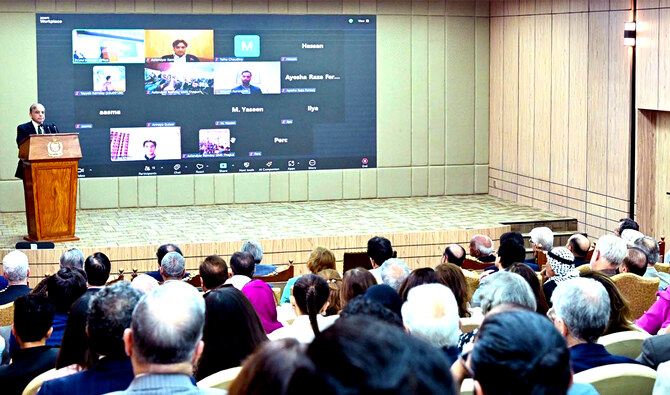ISLAMABAD: Prime Minister Shehbaz Sharif this week laid the foundation stone of first private sector university in Gilgit-Baltistan (GB), promising a bright future for the youth of the remote mountainous region.
Home to some of the tallest mountains in the world, the semi-autonomous GB region is counted among the least developed areas administered by Pakistan.
Ramday University is located in Thagos area of GB’s Ghanche district at an altitude of 11,000 feet. The university is being built on a 200-kanal area of land under a trust, with construction set to be completed through the donations of overseas Pakistanis, the state-run Associated Press of Pakistan reported.
GB-based news portal Pamir Times said the university will offer specialized programs in environmental studies, climate change, hydrology and mineral studies subjects.
“The establishment of an institution of higher learning in a remote area like Ghanche in Gilgit-Baltistan is highly encouraging,” Sharif was quoted as saying on by the APP during the groundbreaking ceremony in Islamabad on Thursday.
The prime minister congratulated former Supreme Cour judge Khalil ur Rehman Ramday on establishing the university.
“He expressed his confidence that this university, located at an altitude of 11,000 feet in Thagos, will reach the peak of modern knowledge and research standards,” the APP said.
Sharif stressed that GB’s development and the welfare of its people were among the government’s top priorities.
The development takes place a day after Sharif visited the mountainous northern region, where he inaugurated a model village for flood-affected families during a day-long visit to Ghizer.
There, Sharif pledged to provide residents with ownership documents to help them acquire new houses that were destroyed by the 2022 floods.




















